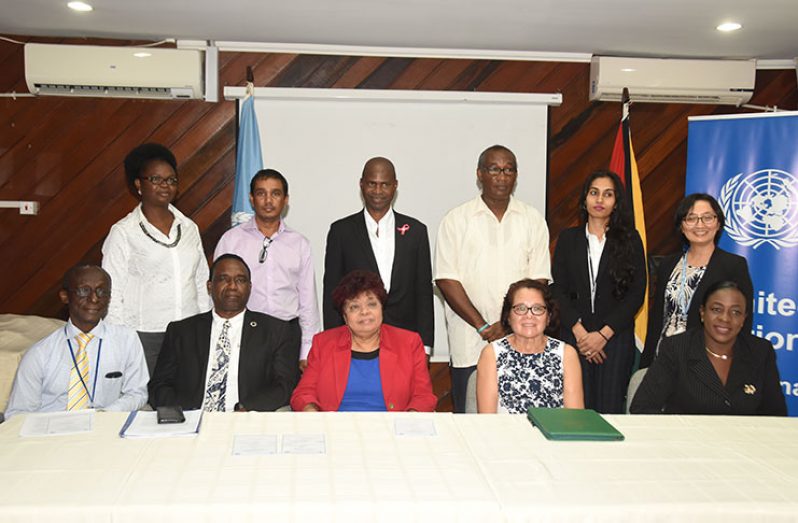A FACT finding mission to the Capital City Vitoria in neighbouring Brazil by officials of the Food and Agriculture Association (FAO)/United Nations Development Fund (UNDP), the Ministry of Education along with members of civil society, has opened avenues for best practices that could be incorporated into Guyana’s school feeding programme.
The mission was comprised of a delegation from the Government of Guyana led by First Lady Sandra Granger, ministers of social protection, social cohesion and education, as well as ministers within the ministry of public health, and public affairs in the Ministry of the Presidency.
It also comprised technical officers in the ministries of agriculture, communities, foreign affairs and education, respectively, and two representatives of civil society.
The United Nations was represented by the UN resident coordinator/UNDP resident representative, the FAO representative and the PAHO/WHO representative.
After comprehensive presentations on the sustainable school feeding programme at the national, state and municipal levels by representatives of the National School Feeding Programme (PNAE) and by the authorities of Vitoria, the mission visited a primary/secondary school and a daycare centre/ nursery school to observe the management of the school feeding programme.
Brazil is said to have a very high rated sustainable school feeding programme, which Guyana believes can work well.
“The sustainable school feeding programme generates multi-dimensional benefits: access to fresh food, nutrition, hygiene, good health, good education, environmentally-friendly agriculture and local/rural economic development,” First Lady Sandra Granger said on at a press conference at the UNDP Brickdam office on Monday.
According to her, the primary and secondary schools visited have diverse menus tailored to nutritional needs of children with special health conditions. Students are also part of the advocacy campaign to eliminate food waste.
“The family farming cooperative received certification to supply the school feeding programme after two years investment in organic farming and now has steady demand from 600 schools that constitute 30percent of its market,” she said.
School feeding has been mandatory in primary and secondary schools in Brazil since 1955, but in 2009, a new policy was introduced to establish a 30 per cent minimum quota of procuring organic agricultural products from local farmers.
This has obliged inter-disciplinary cooperation across line departments of education, health and agriculture to support local farmers in introducing organic farming and supplying schools.
Vitoria is said to be a leader among 700 municipalities in Brazil, capitalising on its oil revenues, historic family farming tradition and strong decentralised governance and commitment.
The sustainable school feeding programme generates multi-dimensional benefits: access to fresh food, nutrition, hygiene, good health, good education, environmentally-friendly agriculture and local/rural economic development.
The primary/secondary school visited had diverse menus tailored to nutritional needs of children with special health conditions.
According to the First Lady, the team was amazed by the demonstration of the strong and dynamic engagement and ownership displayed by the communities, teachers, parents, cooks, students and farmers in driving the sustainable school feeding programme.
She said women’s participation and leadership from community level up to the municipality level was also very visible.
“The municipality triples the subsidy received each year from the Federal Government to finance the school feeding programme, while sectoral officers such as agricultural extension workers and nutritionists provide technical assistance to farmers and cooks hired from the community.”
Monitoring of the programme is also very important, involving communities and local councils that are not paid a salary except for their travel and other associated costs that are covered by the programme.
The First Lady said over the next couple of weeks, the mission members from the Government and the UN system will work together to examine how lessons learnt and experiences shared could be used to strengthen Guyana’s school feeding programme with applicable good practices from the Brazil experience.
“What is absolutely critical for the success is the empowerment of communities in driving the various aspects of the programme from farmers to schools. Then with quality produce of nutritional value. To date, an average 25 per cent of local procurement has been achieved countrywide,” she said.



.jpg)









